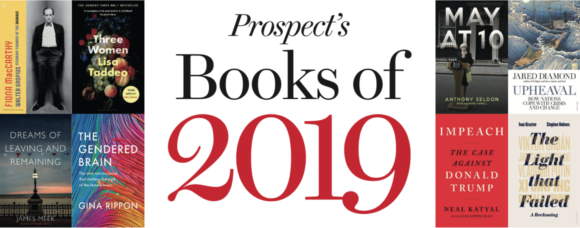
Forty years of neo-liberalism have been a catastrophe. We’ve become so used to passively responding to egoistic incentives that it’s almost impossible to think outside our ideological parameters. Even worse, it’s softening us up for the robot takeover.
That’s the bold thesis of Paul Mason’s Clear Bright Future (Allen Lane). So what’s his answer? Drawing on the work of the philosopher Alasdair MacIntyre, Mason, a Newsnight journalist turned political activist, puts his faith in what he calls an Aristotelian Marxism that pursues economic justice, but not at the cost of individual freedom.
Before the 2008 crash, David Blanchflower was the only member of the Bank of England’s Monetary Policy Committee calling for interest rate cuts. In his innovative analysis Not Working: Where Have All the Good Jobs Gone? (Princeton), Blanchflower doubles down on cheap money, plus revitalised infrastructure spending, to solve the problem of the “underemployed”—people who can’t get decent full-time jobs.
But what about those who do get those jobs? Are they truly fortunate? Daniel Markovits’s The Meritocracy Trap (Allen Lane) argues, firstly, that the wealthy now earn their riches by being extremely productive; and secondly, that the huge strains the rat race imposes mean that they, too, are victims. Although an avowed meritocrat himself, Markovits seeks radical solutions: calibrating public policy to promote middle-income jobs, and stripping elite institutions—including Yale Law School, where he has a perch—of their generous tax breaks.
The great economist of inequality, Anthony Atkinson, died before he could complete Measuring Poverty Around the World (Princeton). Started when Atkinson was chairing the World Bank’s Commission on Global Poverty, and now edited by his friends and colleagues, it advocates more sophisticated ways of monitoring progress—and regression—in reducing poverty. That way, when having political discussions, we know exactly what we’re talking about.
According to Deirdre McCloskey, the statistics are unarguable. Contra Thomas Piketty, about whom she is witheringly critical in Why Liberalism Works (Yale), the real income of the poorest has risen by 3,000 per cent since 1800. The great enrichment, McCloskey says, was a direct result of the humane liberal ideas nurtured during the Enlightenment. “Cheap food. Big apartments. Literacy. Antibiotics. Airplanes. The Pill. University education.” Without capitalism, she argues, we wouldn’t have them.
In Capitalism, Alone (Harvard), Branko Milanovic agrees that capitalism has won. But he differentiates between two different kinds: the liberal meritocratic capitalism developed in the west that McCloskey champions; and the authoritarian capitalism exemplified by China. The western model is currently under strain and elites may well be tempted, Milanovic argues, to use the technocratic toolkit of politically-controlled capitalism to preserve their power. A more general disenchantment with liberal democracy may make that easier.
In Narrative Economics (Princeton), the Nobel Prize-winner Robert Shiller identifies the enduring stories that influence the way we think about the economy, which may influence our patterns of spending and saving, and therefore become self-fulfilling prophecies. The more people talk about a recession, the more likely it is to happen.
Abhijit V Banerjee and Esther Duflo tell a good story in their impressively clear Good Economics for Hard Times (Allen Lane). The married couple won the Nobel Prize for Economics this year for their experimental attempts to alleviate global poverty. The new book offers counter-intuitive solutions to thorny problems. Economic migrants do not depress wages, they say, and Europe needs more of them to do the burger-flipping and lawn-mowing the native-born won’t do.
They are sceptical about Universal Basic Income: it would cost trillions and doesn’t account for the dignity of work. But in the developing world, an ultra-low basic income would free millions from the threat of starvation and enable them to take economic risks. The authors acknowledge that their profession has taken a credibility knock in recent years. But their own work shows what can be done by economists when they treat people as people, not merely statistics or points on a graph.













